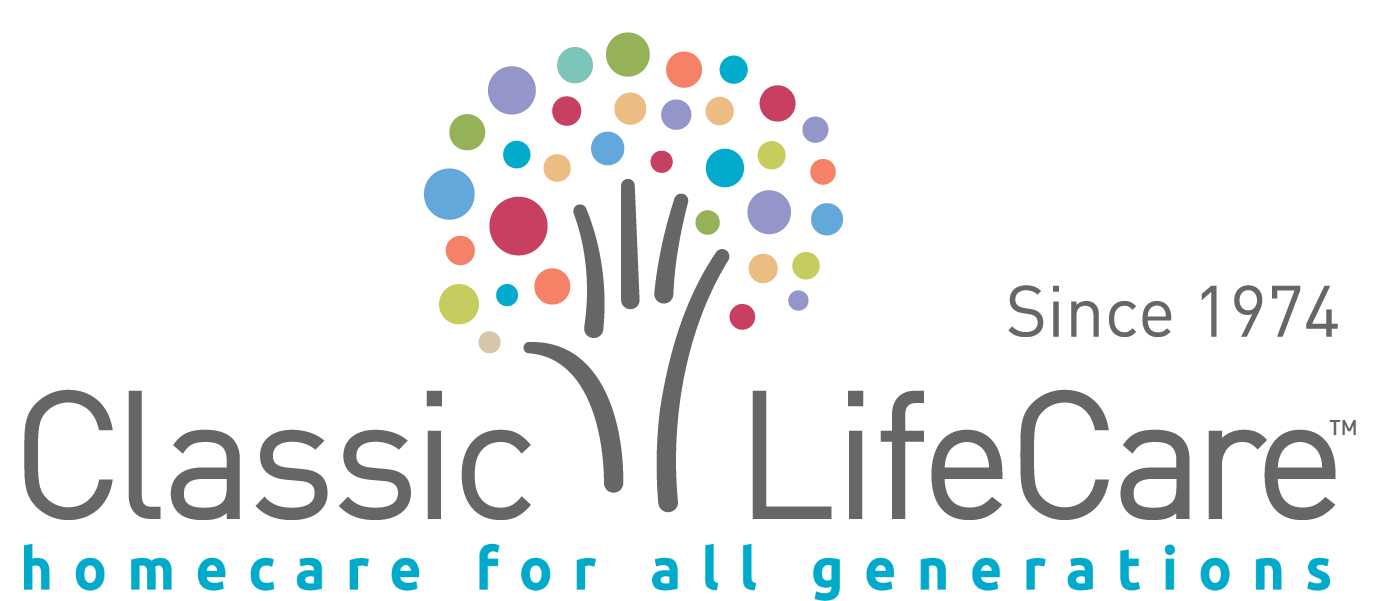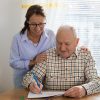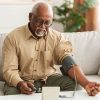
In this blog, Fred and Edie discuss their experience of open heart surgery and the recovery process.
“We were on a cruise to Hawaii in October when Fred felt short of breath,” says Edie. “At first he thought it was an asthma attack, but when the same thing happened when we returned home we went to the doctor. It was a heart attack.”
When we last spoke with Edie in September, she was learning to manage the stress of caring for her aging mother to avoid “caregiver burnout.” Unfortunately for Edie, since then her husband Fred has undergone emergency open heart surgery after experiencing a heart attack.
But don’t worry… Fred is on the way to making a full recovery (with a little bit of help from a home nursing care).
A Stent May Quickly and Easily Solve the Problem
After looking at preliminary blood work results, the doctor confirmed Fred had experienced a heart attack. A coronary artery—an artery that supplies blood to the heart—appeared to be “blocked.” When the doctor suggested a stent would likely solve the problem, both Edie and Fred heaved a sigh of relief.
In the grand scheme of things, a stent is a relatively non-invasive procedure. It’s generally described as a small mesh tube that can be placed inside an artery to help improve the flow of blood. The process of inserting a stent in a coronary artery is called an angioplasty.
Since the stent itself can be inserted via a catheter, the operation is, compared to open-heart surgery, considered to be non-invasive. Recovery is quick, and there is a lower risk of complications during and after the operation.
“We were so relieved,” says Edie. “Experiencing a heart attack was a real shock for everyone. Fred is relatively young at 67 years old, and he’s a runner on top of it. He was in excellent physical shape, so we never expected a heart attack.”
The Shock of Open Heart Surgery
So, Fred’s electrocardiogram results came back as a total shock.
“It turned out Fred needed to have a quadruple bypass,” says Edie. “It was much more serious than anyone thought, and he never even left the hospital after his EKG. The operated on him three days later.”
The days of waiting were a time of high stress for Edie and her husband. In their sixties, both were relatively young and had never expected to experience a heart attack. Despite Fred’s athleticism, he was experiencing coronary heart disease—the blood vessels that carry oxygen and nutrients to his heart had become blocked. Doctors must bypass the blocked arteries to ensure the heart has steady supply of blood. To do so, doctors must perform “open-heart surgery” which involves exposing the heart itself by cutting through the sternum or breastbone.
“The next couple days after the diagnosis were terrifying for both my husband and me,” says Edie. “We didn’t know if Fred would ever recover, or how he would recover.
Luckily, a talk with a home care nurse provided some small amount of comfort.”
Open Heart Surgery Isn’t the End of the World
Edie had already been at the end of her rope earlier in the year, trying to figure out to care for her aging mother without burning out. She decided to seek out help caring from her mother from a home health care worker.
“When I asked Jeanette, my mother’s home care worker if she could provide a bit more help for my mother as I was busy Fred was in the hospital, she related to me her own experience with open heart surgery,” says Edie. “It helped put my mind at ease, at least a little.”
Jeanette mentioned her own father had undergone emergency open heart surgery. After spending a week or so in the hospital Jeanette’s father was sent home. He was encouraged to start moving as soon as he felt ready—preferably the sooner the better.
Six months later he had completely recovered from the surgery.
“We felt so much better knowing that open heart surgery wasn’t the end of the world,” says Edie.
Two days after Edie’s conversation with Jeanette, Fred underwent open heart surgery. He spent two night in intensive care, and then another three nights at the hospital before being sent home.
Asking For Help from a Home Care Worker
“Once again, with my work and my mother and now with Fred, I knew that I myself was going to be in serious danger myself of just burning out and potentially experiencing serious health issues of my own, so I decided to ask for help,” says Edie. “I contacted a nurse to get some advice about complex care following Fred’s surgery.”
Even after experiencing open-heart surgery Fred didn’t need particularly specialized care, but Edie did need some help with managing her husband’s recovery.
“It’s important for people recovering from open heart surgery to remain active or they may not make it,” says Edie. “But we had a problem: I was having a hard time getting Fred to do anything at all. I needed help.” Depression is common following open heart surgery. This can become a serious obstacle to recovery.
“Having a home care aid available who could also help encourage my husband to become active while ensuring we kept track of Fred’s medications and so on was so helpful,” says Edie. “The whole process of experiencing and recovering from a heart attack can be very frightening, especially if you’re alone. Calling for help really makes a difference.”
Fred experienced his heart attack in October, and was operated on in the middle of November. Six weeks later, Fred is still in recovering his strength. He did enjoy Christmas with their two adult children, who flew in from Ontario where they are attending university, and Edie’s mother. Jeanette also made a visit.
We’ll keep you posted on Fred’s recovery.
5 Tips for Recovering from Open Heart Surgery
- Do the breathing exercises you learned in the hospital for 4 to 6 weeks.
- Shower every day, washing the incision gently with soap and water. Do NOT swim, soak in a hot tub, or take baths until your incision is completely healed. Follow a heart-healthy diet.
- If you feel depressed, talk with your family and friends. Ask your health care provider about getting help from a counselor.
- Continue to take all your medicines for your heart, diabetes, high blood pressure, or any other conditions you have.
- Stay active during your recovery, but start slowly.
Some names and situations have been changed in this story for privacy reasons. Classic LifeCare provides in-home support; both live-in and hourly.
A Health Care Worker can help with housework, personal care, meal preparation and complex care needs. One of the benefits of private over public home care is that the client is in the driver’s seat. Care can be completely tailored to the individual’s requests.
To learn more about Classic LifeCare and the home care services it offers, visit www.classiclifecare.com.






